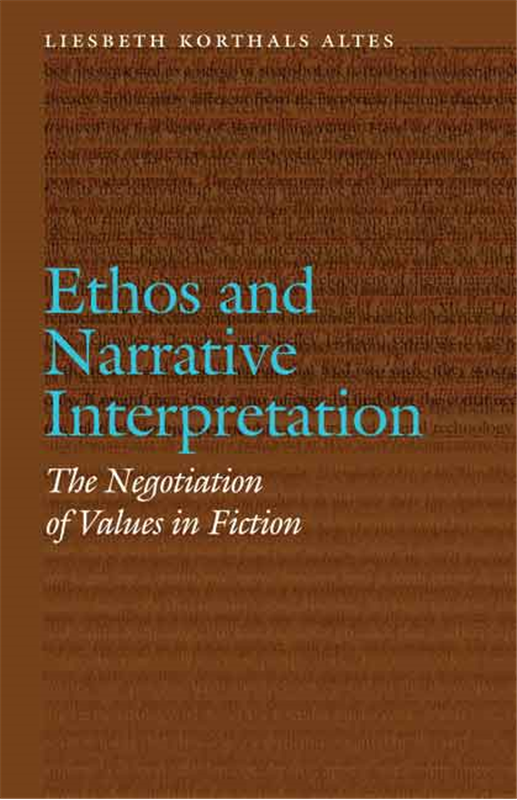
On peut lire dans Acta fabula deux comptes rendus de cet ouvrage
"La méta-herméneutique, ou l’analyse des pistes interprétatives" par Anaïs Oléron (Acta fabula (Janvier 2015, vol. 16, n° 1) :
Et au sein du dossier critique (vol. 21, n° 2, février 2021) qui accompagne le sommaire du 25e numéro de la revue Fabula-LhT, tous deux sous le même intitulé: "Débattre des fictions" :
"Itinéraires herméneutiques : la théorie narrative comme cartographie", par Aurélien Maignant.
*
Liesbeth Korthals Altes, Ethos and Narrative Interpretation. The Negotiation of Values in Fiction
Lincoln, Londres : University of Nebraska Press, coll. « Frontiers of Narrative », 2014.
EAN 9780803248366. — 325 p. — Prix USD60
Ethos and Narrative Interpretation examines the fruitfulness of the concept of ethos for the theory and analysis of literary narrative. The notion of ethos refers to the broadly persuasive effects of the image one may have of a speaker’s psychology, world view, and emotional or ethical stance. How and why do readers attribute an ethos (of, for example, sincerity, reliability, authority, or irony) to literary characters, narrators, and even to authors? Are there particular conditions under which it is more appropriate for interpreters to attribute an ethos to authors, rather than to narrators? In the answer Liesbeth Korthals Altes proposes to such questions, ethos attributions are deeply implicated in the process of interpreting and evaluating narrative texts.
Demonstrating the extent to which ethos attributions, and hence, interpretive acts, play a tacit role in many methods of narratological analysis, Korthals Altes also questions the agenda and epistemological status of various narratologies, both classical and post-classical. Her approach, rooted in a broad understanding of the role and circulation of narrative art in culture, rehabilitates interpretation, both as a tool and as an object of investigation in narrative studies.
Liesbeth Korthals Altes is a professor of general literature in the Department of Arts, Culture, and Media in the Faculty of Arts at the University of Groningen in the Netherlands. She is the author or coeditor of several books including Authorship Revisited: Conceptions of Authorship around 1900 and 2000 and The Autonomy of Literature at the Fins de Siècles (1900 and 2000): A Critical Assessment.